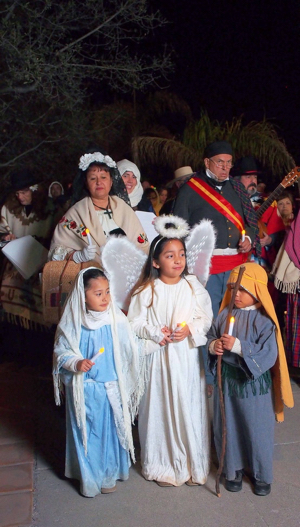
A Las Posadas procession. Photo by Santa Barbara Trust for Historic Preservation, courtesy of Flickr
SUNDAY, DECEMBER 16 to MONDAY, DECEMBER 24: The colorful, lively nights of Las Posadas begin the countdown to Christmas in Mexico, Guatemala and parts of the United States tonight, as an ancient tradition is reenacted.
Tantalizing dishes, merry carols and the story of the nativity has been bringing together communities in Mexico for more than 400 years in a beloved tradition that lasts nine nights and ends on Dec. 24. Each night of Las Posadas, a small, candlelit procession travels through a neighborhood, its participants dressed like Mary, Joseph, angels and shepherds, reenacting the search for a safe place to welcome the infant Jesus. Often, musicians follow the group, as do accompanying members of the community.
POSADA, LODGING & ACCOMMODATION
Posada, Spanish for “lodging,” or “accommodation,” describes the events of Las Posadas: as the procession stops at designated houses and asks permission to stay, it is prearranged that all homeowners turn away the visitors until the host family is reached. At the home of the host family (or, in some regions, a church), the visitors are welcomed inside, and all present kneel before a nativity.
Following prayers, tamales and ponche navideno are served, washed down with rompope, a Mexican drink with a taste similar to eggnog. Children may hit a five- or seven-pointed piñata, often filled with dried fruits, sugar sticks, candies and nuts.
RECIPES, LEARNING & MORE
For recipes for tamales, rompope and more, check out an article from the Washington Post; for craft ideas, decoration DIYs and more, check out this Pinterest page. For tips on how to select and care for a poinsettia, go to Lowes.com.
As a learning resource, NBC News suggests Posadas Navidenas as one of five Latino holiday traditions to share with children.